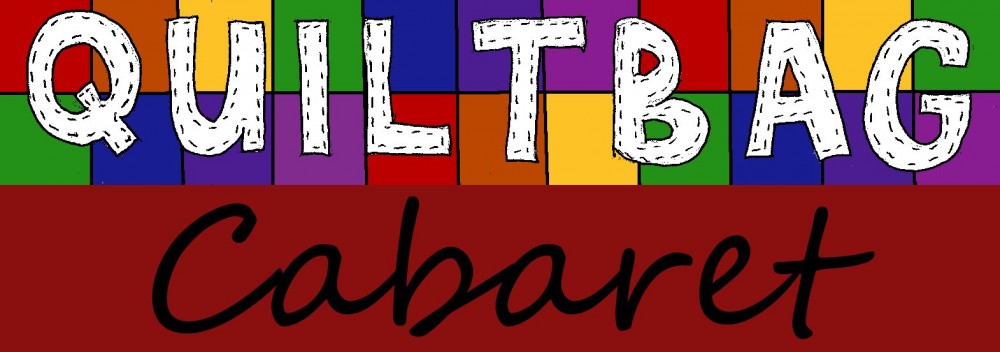Skittles by Richard Marsh
-Reviewed by James Webster –
@ the Battersea Arts Centre
15/12/2011
Richard Marsh is a very gifted performer.
A superb poet, who hosts one of my favourite poetry events Sage & Time every month in Farringdon, and has won a bevvy of slams (and has been reviewed several times by Sabotage at Sage & Time and Hammer & Tongue).
He’s also a talented playwright. He’s a writer in residence at Theatre 503, having written several shows that have been performed at the Edinburgh Festival and at 503. His one-man poetry-play Skittles premiered in Edinburgh last year, garnering a fistful of ebullient reviews, and he went on to do several sell-out performances at the Battersea Arts Centre. It was in the second run at the BAC that I saw the show and I have to admit I was blown away.
A sweet relationship – the story
The premise of skittles is simple enough. Take a witty, geeky, everyman, throw in a suitably quirky love interest with a tempestuous love-life who sees our everyman (called Richard, but Marsh maintains in the show he’s not playing himself) as just a friend, while he expresses his interest by never mentioning his feelings. So far so standard. Add a dash of skittles, have the characters bond over a shared love of this confection, and stir the resulting sweetness into your otherwise stereotypically bland romance. Where Marsh succeeds in crafting his story is that he takes an overused trope (geeky guy meets quirky girl, but she sees him as a friend, but he’s the only one who understands her) and puts his own stamp on it, showing us the story of a relationship that is eminently believable and swiftly overcomes its slight stereotyping by being equal parts sweet and insightful.
And just because their relationship is sweet, doesn’t mean it’s saccharine (Richard woos the brilliantly drawn ‘Shiv’ by drunkenly telling her to ‘fuck off’). The play charts their relationship from its romantic and lovestruck beginnings, but is possibly at its heart-wrenching best when alluding to the tiny cracks that appear in their relationship, movingly describing the couple’s arguments, moodiness and the use of Toploader’s ‘Dancing in the Moonlight’ as an offensive weapon. The story is as good as it is because its so heartfelt, Marsh conjuring up the feelings of dizzying love and evoking bleak and crushing heartbreak with equal skill.
Playing with poetry – the medium
Another reason the story works so well and the show is so enjoyable, is that he uses the medium of a one-man poetry show so well. His performance persona is approachable, friendly and easy going, making even his more florid and descriptive verse easily accessible to the audience. Thus the poetic nature of the show magnifies and distills both the humour and the emotion of the play, while the free-flowing and natural rhythm keeps things moving and prevents Richard from ever seeming pretentious. And the action switches seamlessly from narration to well-defined and expressed characters and dialogue that are often very funny (the exchange where Richard proposes is especially fun as the characters get more and more exasperated, finishing with ‘I need the loo!’ ‘Will you marry me?’ ‘Yes, but I still need the loo!’), impressively taut and strained (an argument about wedding planning and excel spreadsheets is especially fraught) and sweetly moving.
Skittles also makes excellent use of music, sound and props. The props are mostly for comic relief: a t-shirt that reads ‘I don’t care about your fucking kids’ and a bowl of skittles that is offered to the audience at a wedding (coupled with the audience being told ‘you owe me a toaster from John Lewis’, in an excellent example of Marsh’s smooth way with the audience), although the skittles are also used again later to impressively depressing effect as a forlorn Richard shovels a giant pack of the sweets into his mouth, letting the crushed rainbow juices flow out the sides of his mouth and down his chin. Especially impressive as he did that every day of his run in Edinburgh (and apparently doesn’t really like skittles). ‘Taste the fucking rainbow’ indeed.
The music and voice recordings are also used to great effect. Toploader’s ‘Dancing in the Moonlight’, as mentioned above, plays a big role as a kind of emotional marker in the play’s central relationship that’s easy for the audience to identify. While an answerphone message from Shiv is also used several times in the show for varying effects, a very effective tool to show the changing nature of the characters’ relationship.
Language with character(s) – the phraseology
A big reason why the show works, why the characters are so endearing and why the audience were so carried away by the play’s alternating sweetness, sadness and wistfulness, is the strength and originality of Marsh’s language.
From the amusing and sweet descriptions of characters who are alternately ‘hotter than a pile of kettles’ and who the main character loves ‘like Oedipus loved his mum’ to a drawn out description of a break-up over a long car journey (‘a 60mph maggot’s nest’) that was so moving I felt like I was breaking.
Especially good was a lengthy personification of Sorrow as a woman he’s cohabiting with (while appropriately listening to Morrisey). It’s mournful and bleakly humorous, filled with language that is bled through with misery.
Throughout the show he lifts up little mundane details and makes them astonishingly beautiful, tearful and funny (I enjoy the phrase ‘salt and vinegar kisses’ on a flirtation in a pub especially’), and weaves them carefully into his verses and rhythms so they feel perfectly natural. Which of course they are, the feelings and experiences he describes are relatable to most and he manages to convey them in ways that seem plucked out of the audience’s collective consciousness. Only more eloquently expressed.





This sounds awesome.
It really really is.